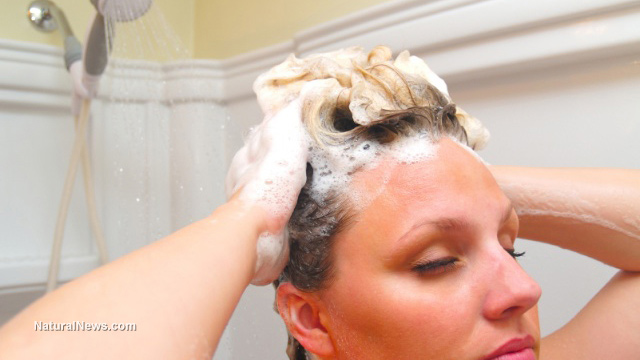– Creepy: EPA announces plans to monitor how long you take in the shower (Natural News, April 7, 2015):
The federal government is continuing its war on your privacy, as yet another agency in the vast bureaucracy seeks a new way to keep its eye on you and try to change your lifestyle.
Now, the U.S. Environmental Protection Agency (EPA) is spending $15,000 to develop a wireless system that can be placed in hotels to track how long guests are in the shower, all in an attempt to get them to “modify their behavior.”
“Hotels consume a significant amount of water in the U.S. and around the world,” an EPA grant given to the University of Tulsa says. “Most hotels do not monitor individual guest water usage and as a result, millions of gallons of potable water are wasted every year by hotel guests.”
“The proposed work aims to develop a novel low cost wireless device for monitoring water use from hotel guest room showers,” the grant continued. “This device will be designed to fit most new and existing hotel shower fixtures and will wirelessly transmit hotel guest water usage data to a central hotel accounting system.”
As reported by the Washington Free Beacon, the funding is for the development of a prototype device and market analysis, and the stated goal of the project is to get Americans to change their behavior when staying at hotels — as in, no more long morning showers.
The EPA as shower police?
“This technology will provide hotel guests with the ability to monitor their daily water online or using a smartphone app, and will assist hotel guest in modifying their behavior to help conserve water,” the grant, which was filed under “Water conservation,” “Urban water planning” and “Sustainable water management,” said.
The EPA has already established a program encouraging hotels to track water use, as well as upgrade guest bathrooms with low-flow toilets and showerheads. It’s called WaterSense®,[PDF] and it also encourages guests to participate in linen and towel reuse programs.
Apparently, the EPA is bothered that Americans in hotels take a whopping eight minutes, on average, to shower, using about 18 gallons of water. The agency would like that time to be cut by at least one minute.
Welcome to the 7-minute shower?
In an interview with the Washington Free Beacon, Tyler W. Johannes, Ph.D, an associate professor at the University of Tulsa’s School of Chemical Engineering, which is developing the project, says he would like to see the technology in “all major hotels and used across the country.” He added that the device would try to get hotel guests to shower in seven minutes or less, as a start.
He also said that his team has estimated that the average hotel shower per guest and per shower lasts about 8.2 minutes and uses 17.2 gallons of water. “Initially our device/app seeks to get hotel guests to reduce their water use by 10 percent or to reduce their showers by about one minute,” he explains.
EPA says it’s not monitoring, but “encouraging creativity”
The professor provided a link to Home Water Works, a collaborative project involving a few entities including the Alliance for Water Efficiency. The link recommends taking five-minute showers.
The project also suggests collecting the cold water that runs prior to meeting a person’s desired temperature to water plants, or taking “navy showers.”
Navy showers involve a simple three-step process. First, a person is advised to turn on the shower water and rinse their hair and body. Then, they turn the water off while they lather and clean themselves, shedding minutes of otherwise wasted water. Finally, a person turns the water on again to rinse themselves completely. It’s estimated that total water flow, when following this process, can go down to five minutes or less.
After the Washington Free Beacon published its story, an EPA employee assured the news site that the agency was not acting as shower police.
“Let us be very clear, EPA is not monitoring how much time hotel guests spend in the shower,” said EPA deputy press secretary Laura Allen. “The marketplace, not EPA, will decide if there is a demand for this type of technology. It’s ultimately up to hotels to use technology like the monitors being developed at the University of Tulsa. EPA is encouraging creativity with water conservation efforts.”
Sources:
http://www.epa.gov[PDF]
